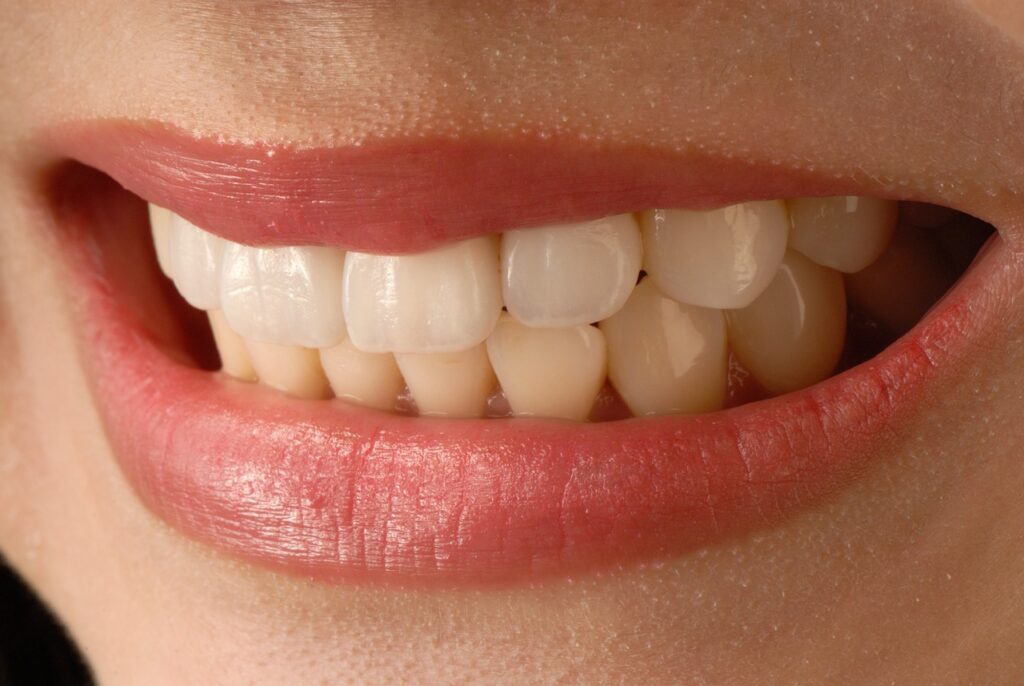
Veneers have become a popular cosmetic dentistry choice in the UK, offering individuals the chance to achieve a more desirable smile. When considering any medical or cosmetic treatment, the transformative and self-esteem-enhancing effects are substantial, yet it’s imperative to make such decisions armed with comprehensive knowledge. A deep understanding of the associated risks is essential before embarking on this dental improvement.
Here, we look at the complexities of veneers, to give anyone contemplating this path a balanced view of its advantages and possible drawbacks.
What are veneers?
Veneers are laminates, typically fashioned from porcelain or a composite resin material, intended to overlay the front of your teeth. They are designed to provide a whiter and more consistent appearance.
Individuals select veneers for a variety of reasons. Some seek to amend stains that are resistant to standard whitening methods. Others aim to rectify slight misalignments or spaces between the teeth without using braces. Veneers can restore damaged or worn teeth to a revitalised appearance.
The application process entails a dentist delicately removing a fine enamel layer from the teeth to accommodate the veneer, which delivers an authentic appearance when the veneer has bonded. Although veneers present a swift remedy to numerous cosmetic dental issues, it’s important to fully understand the procedure and its enduring consequences before going ahead.
Common risks associated with veneers
The chief concern with veneers involves heightened tooth sensitivity, stemming from the removal of an enamel layer during the process. Without this defensive coating, teeth may become vulnerable to thermal variations, resulting in discomfort when consuming hot or cold food and drinks.
Another point to consider is the procedure’s permanence. Once the enamel has been removed for veneer placement, you cannot get it back. This commits the patient to a long-term solution involving veneers or comparable restorative methods for the impacted teeth.
Aesthetic issues may also arise, particularly if the veneers’ colour fails to perfectly match the natural teeth. Despite efforts to achieve a flawless blend, discrepancies in shade may occur, potentially causing dissatisfaction.
Additionally, there’s a risk of tooth decay if veneers are not fitted properly. An incorrect application can lead to gaps that could harbour bacteria.
Serious risks of veneers
While veneers are deemed safe under professional hands and complications are rare, prospective patients should understand and acknowledge the most serious side effects before choosing to have veneers fitted.
A significant hazard is the excessive removal of tooth tissue during preparation, which could engender long-term dental issues. Patients might need root canal treatments or end up losing the tooth in the most serious circumstances.
Gum tissue reactions also pose a concern. Occasionally, gums may respond adversely to veneers. This may incite inflammation, redness, or bleeding, and impact both gum health and the look of the veneers themselves.
The longevity of veneers is another consideration. While they are intended to endure, they are not impervious to damage. Excessive force or trauma can lead to fractures or chips.
The natural shifting of teeth over time could misalign the veneers, affecting aesthetics and bite. Moreover, the rare possibility of debonding, where veneers detach from the tooth, can be influenced by various factors and necessitates reattachment or replacement.
Recognising these risks underscores the necessity for selecting a qualified dental practitioner and regular check-ups to oversee the veneers’ condition.
The importance of legal advice if veneers go wrong
Should you suspect you have suffered negligence during a veneer treatment, consulting with a solicitor – particularly one versed in dental negligence – is crucial. They offer essential advice on how to claim compensation for veneers.
They can explain your patient rights and the viability of a claim, help in collecting evidence, and handle legal procedures to ensure timely and effective claim presentation. Additionally, they can mediate with the dentist or practice, or their insurers, to secure the compensation you are owed for any distress caused.
Moreover, a solicitor offers support, directing you to support networks or counselling services, facilitating the emotional coping process.
Hence, in events of suspected negligence, a solicitor’s expertise is invaluable, championing your rights and ensuring due process within the legal system.
Tips for minimising risks
Proactive risk minimisation is key when considering veneers. Implementing precautionary measures can enhance the experience, help to avoid the most serious side effects and ensure the best outcome. Here are several strategies for a safe and satisfying process:
- Investigate your dentist: before proceeding, conduct extensive research into your dentist’s background. Look for established expertise in cosmetic dentistry and veneer experience. Perusing reviews, soliciting referrals, and verifying credentials can offer significant insights.
- Insist on detailed consultations: a thorough consultation is imperative. Utilise this chance to weigh risks and benefits, pose queries, and establish achievable expectations. A reputable dentist will willingly address your concerns and clarify details.
- Adhere to care guidance post-procedure: follow your dentist’s aftercare advice diligently. This may involve specific dietary guidelines, oral hygiene practices, and routine check-ups.
- Maintain consistent dental appointments: continuous dental visits are vital post-recovery. These enable your dentist to monitor the veneers and preemptively tackle any issues.
- Emphasise oral hygiene: ensuring oral hygiene is important. Routine brushing, flossing, and mouthwash use can prevent decay and extend your veneers’ lifespan.
- Consider dietary and lifestyle habits: steer clear of hard foods or objects that could damage the veneers. If teeth grinding is an issue, discuss preventative measures with your dentist.

Lifebing is driven by an unrelenting passion for promoting health and well-being, our team is wholly committed to curating exceptional content and immersive experiences.
